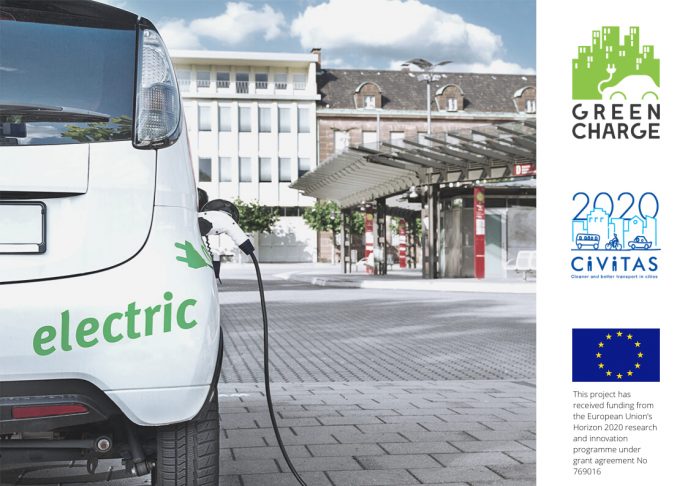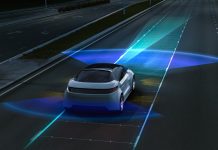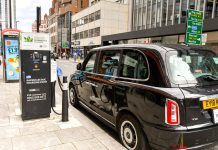Arno Schoevaars, Managing Consultant Strategy & Innovation at PNO Innovation, charts the H2020 GreenCharge project, which strongly encourages successful business models for sustainable electric vehicle charging solutions
The H2020 GreenCharge project aims to demonstrate new business models that use locally produced renewable energy to charge private and shared electric vehicles (EVs) in cities. No more traffic jams. No more parking problems. Green energy produced and used in the city. Achieving a zero-emission transport system, based on EVs running on green energy is the dream of many modern cities. The H2020 GreenCharge project demonstrates in Barcelona, Bremen and Oslo that this is achievable with new business models, technologies and guidelines for cost-efficient deployment and operation of EV charging infrastructure.
From the first day of the project in September 2018, all three pilot cities started implementing their demonstrations. After the first year, all sites are running and testing their first technology and business models. Project partners aim to trigger a chain reaction in other cities. For this, 12 Uptake Cities across Europe are closely connected to the project and actively share visions, knowledge and experience.
The future: Functioning and financially viable e-mobility system
The future is an all-electric mobility system where people share pools of personal vehicles without concerns about vehicle availability or charging opportunities. This can be done in a well-functioning and financially viable ecosystem of users, service providers and authorities. This is the long-term vision of the partners involved in the European funded GreenCharge project.
The project has three objectives. The first is to demonstrate and validate that existing technologies – combined with new (shared) business models – generate viable solutions for charging EV’s with sustainable energy produced in an urban environment. The second is to identify key success factors and barriers for the deployment of these technologies and models. The third is, to recommend actions and guidelines to all actors, from government to businesses and technology providers.
We must convince stakeholders that technologies work and business models ensure adequate financial rewards for investors, at prices that consumers and authorities can afford. Business innovation and technological innovation go hand-in-hand. GreenCharge addresses all these issues in an integrated approach that supports Sustainable Urban Mobility Plans (SUMPs). The approach combines three main elements: e-mobility, energy smart neighbourhoods and business models:
-
E-mobility
Citizens need to feel confident that they can access charging infrastructure as and when they need it. So GreenCharge partners develop a smart charging system that lets people book charging in advance, so they can easily access the power they need.
-
Energy smart neighbourhoods
If lots of people try to charge their vehicles around the same time (e.g. on returning home from work), public electricity suppliers may struggle to cope with the peaks in demand. So Norwegian local GreenCharge partners develop software for automatic energy management in local areas to balance demand with available supplies. This balancing act combines public supplies and locally produced reusable energy, using local storage as a buffer and staggering the times at which vehicles get charged.
-
Business models
Cooperation between governments, prosumers, citizens and businesses is key for success. New business models are needed to describe what value is offered to which customer segment(s), how this value is created and what cost structure and revenue streams are involved. Using the Business Model Innovation Game the project develops, tests and improves business models that encourage the use of electric vehicles and sharing of energy resources. This allows all those involved to cooperate in a sustainable and economically viable way.
The Demonstrators: GreenCharge cities
The project’s vision on e-mobility is demonstrated in real-life situations in Barcelona, Bremen and Oslo. Different business models will be tested and improved along the way based on feedback from users. During the pilot, business models will be evaluated and iterated to best suit the needs of different stakeholders. In this way, a successful business model will emerge. Some features that cannot be tested in these living labs due to technical constraints or scalability problems are tested in a simulation model.
The trials cover a wide variety of factors: vehicle type (scooters, cars, bicycles), ownership model (private, shared individual use), charging locations (private residences, workplaces, public spaces, transport hubs), energy management (using solar power, load balancing at one charging station or within a neighbourhood, battery swapping) and charging support (booking, priority charging).
Barcelona, Spain
Our goal in Barcelona is to enable a shift away from fossil fuel-powered motorbikes and scooters, toward electric ones. And shift from fossil fuel-powered cars towards electric cars and Light Electric Vehicles (LEVs), such as e-bikes.
Bremen, Germany
The goal in Bremen is to integrate electric cars into car-sharing systems. And the use of renewables and stationary batteries to balance peak demand from charging.
Oslo, Noway
Our goal in Oslo is to provide cost-efficient and renewable home charging facilities for inhabitants of 246 flats. We want to manage capacity in the electricity grid and in the availability of charging parking spaces.
Green city energy, green city transport
We strongly believe that a zero-emission transport system, based on EVs running on locally produced green energy is an achievable future for many cities. The advantages for citizens, opportunities for businesses and benefits for governments are tremendous. GreenCharge aims to open the way for a future where people share vehicles, in a functioning and sound ecosystem of users, service providers and authorities. Do you want to stay up-to-date on the project? Then follow us on LinkedIn and Twitter.
Please note: This is a commercial profile











